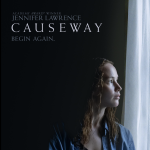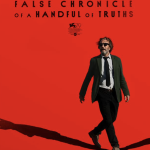Two lifelong friends find themselves at an impasse when one abruptly ends their relationship, with alarming consequences for both of them.
Chuck says:
What the population of the tiny Irish village of Inisherin may lack in diversity or numbers, it makes up in eccentrics. There’s Mrs. O’Riordan (Brid Ni Neachtain), the local shopkeeper who views any sort of news as more valuable than the money she hordes. The priest (David Pearse) makes weekly visits that are often punctuated by terse judgements and, at times, threats. Mrs. McCormick (Sheila Flitton) is an old crone who lives in a tiny hut that all avoid, though she seems to have some insight as to the future of some of her neighbors. Cutting a wide swath through town is Peadar Kearney (Gary Lydon), the bully of a cop who has no problem throwing his weight around, particularly towards his dim son Dominic (Barry Keoghan) who he abuses in a variety of ways. Siobhan (Kerry Condon) is not to be overlooked, she’s a fiery beauty who’s never married and longs to escape the confines of the island.
Then there’s her brother Padraic (Colin Farrell) a simple man, a dairy farmer who looks forward to spending time with his pet donkey Jenny and sharing a pint with his mates at the local pub. However, he’s put into a tailspin when his best friend Colm (Brendan Gleeson) tells him one day he wants nothing more to do with him, that he is not to converse or interact with him anymore. No further explanation is given. This simple request winds up touching many in the village, all of them hearing of the incident, all wondering as to its purpose and outcome.
This is the premise of Martin McDonagh’s “The Banshees of Inisherin,” a darkly humorous, poignant look at a bond between two men that transforms due to a series of rash acts undertaken by both. Propelled by the filmmaker’s trademark razor-sharp dialogue and distinctly drawn characters, Farrell and Gleeson are at their finest, delivering deeply felt performances, both relishing the opportunity to tackle this queer, moving tale.
The time is 1923. The Irish Civil War is coming to an end and while the citizens of Inisherin are happy it hasn’t spilled over to the island where they live, there’s a fear of isolation that nags at most of them. More than anything, this has what’s upset Padraic about Colm’s declaration. The camaraderie they share, the stories they know in common, the experiences their relationship has been built on serves as an anchor for him, one of the few things that provide purpose and meaning to his life. Colm though, needs more. Older than Padraic, he senses his days are numbered, and longs to leave some mark behind. A musician at heart, he sets out to write a song he hopes will live on after he’s gone. The need for solitude to work on this is what prompts him to cut ties with Padraic, something the young man can’t understand.
Equally isolated is Siobhan. She hides the hurt of her loneliness behind a veneer of bluster, escaping through the many books she reads, tired of the petty affairs of her nosey neighbors. She wants something more and while she may not know exactly what she seeks, an offer of a job at a library on the mainland tempts her. Dominic lacks such opportunities but feels much the same as Siobhan. A bit simple but honest, he longs to make an honest emotional connection with some one but lacks the tact to do so. A scene in which he reveals to Siobhan what’s in his heart is the film’s most moving moment.
The citizens of Inisherin all share in the emotions Padraic and Colm are wrestling with which is why they take such a keen interest in the conflict that ensues between them. Friendship devolves into enmity until an odd understanding is reached between them. Whether they like it or not, they are bound together for life, the film’s conclusion offering only an indication of how they might progress. That we look at our own follies and relationships through the prism of theirs makes “Inisherin” a film that’s not easily shaken and one of the year’s best.
4 Stars




